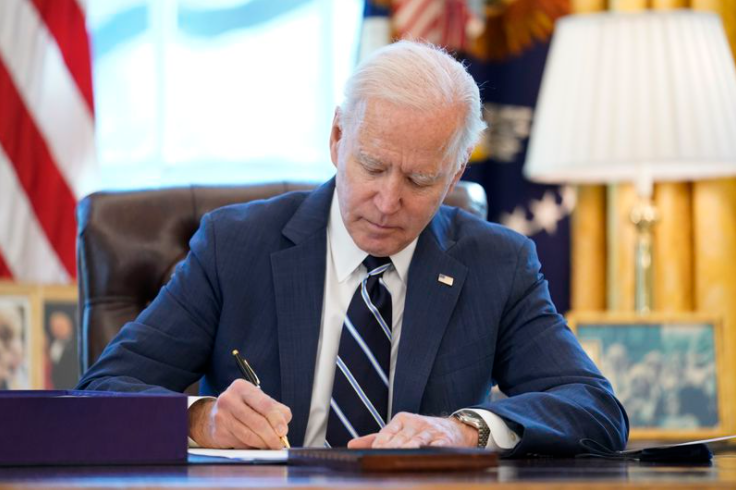The Lowdown on the Covid Relief Bill
March 18, 2021
The pandemic has presented devastating financial issues to families across the country, and on a wider scale the globe. A major bill has just been passed in an attempt to help those struggling.
On March 10 House Democrats voted 220-211 to pass what’s known as the Covid Relief Bill. The proposition then went to President Biden to sign into law, which he did on March 11. This 1.9 trillion dollar support plan has now been put in place.
It is said that the motion will reach 85% of American Households. The major point of the bill is to give unemployment aid, tax credit expansions, direct payments to struggling Americans, help state and local governments, and supply funds for vaccine distribution. Eligibility for support will be based on the most recent tax returns.
As of now, individuals, living alone and making more than $80,000 a year will not receive a stimulus. Married couples earning less than $150,000 a year will earn $1,4000 while heads of households making $112,500 will receive the same. An additional $1,400 stimulus will be granted for each child during the first round of checks. The plan also extends to schools, restaurants, and health insurance, along with several different areas of need.
“This legislation is about giving the backbone of this nation – the essential workers, the working people who built this country, the people who keep this country going – a fighting chance,” President Biden said.
The bill was passed on party lines, with all votes coming from Democrats. Many Republicans feel that this plan will oversaturate the economy and cause massive inflation. Others are angered by possible tax increases during the pandemic which have already hurt the economy. President Biden has promised not to heavily tax those making less than $400,000 a year, whether he’ll be able to keep that promise is yet to be seen. This idea calls for him to raise the max tax rate on those making a yearly income of over $400,000 to 39.6% from the current 37%.
Many Democrats feel that this kind of stimulus is necessary to get the economy back to a good place. They see this bill as the first steps toward a new America, wanting to keep the support systems in place indefinitely to help struggling citizens. While some worry about the risk of inflation Jared Bernstein, who is on The Council of Economic Advisers said, “I don’t believe it will lead to overheating. I think that risk is far smaller than the risk of not doing enough to vanquish the virus and provide people the help they need.”
The plan has already been put into motion. More than 90 million stimulus payments were already sent, with a new batch circulating on April 7.





Audrey Levenson • Apr 9, 2021 at 1:32 pm
Excellent article! This bill will provide some aid to so many Americans in need, and the author expresses this with great clarity.